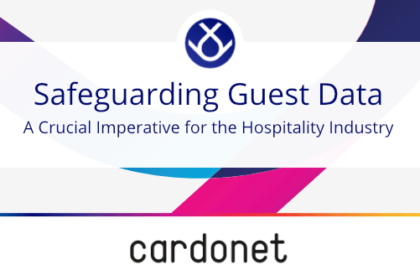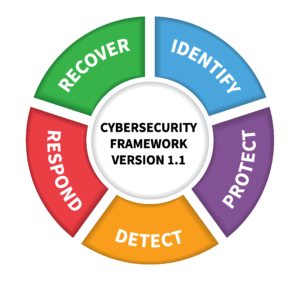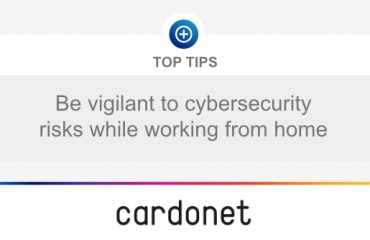
In today’s digital age, data has emerged as a priceless commodity, and the hospitality sector now stands at a crossroads. Beyond its traditional role of delivering remarkable service and unforgettable experiences, the industry finds itself burdened with a critical responsibility: protecting the sensitive information of its patrons. Recent cybersecurity breaches targeting key players in the hospitality field serve as stark reminders of the pressing need to bolster your defenses and ensure the safety of guest data.
The Impact of Data Breaches on Guest Trust:
Guest trust forms the bedrock upon which the hospitality industry thrives. A single data breach has the potential to shatter this trust, tarnishing reputations, and compelling guests to seek alternative accommodations. Take, for instance, the colossal breach that befell Marriott in 2018, exposing the personal and financial information of over half a billion guests. The aftermath of such breaches extends far beyond mere financial losses, encompassing the erosion of the trust guests place in these establishments.
Examples of Cyber Attacks in the Hospitality Industry:
Here are some poignant examples of cyberattacks and data breaches that have struck the hospitality sector in recent years. These cases spotlight the profound repercussions of data breaches in this industry and underscore the benefits of proactive preparedness against cyber threats.
InterContinental Hotel Group (IHG) Incident
A notable recent cyber-attack on the hospitality industry involved the InterContinental Hotel Group (IHG) in 2022, affecting its renowned brands like Regent, Crown Plaza, and Holiday Inn. The breach stemmed from the compromise of Starwood’s data and subsequently extended to IHG, which encompasses over 6,000 hotels across more than 100 countries. The compromised data included guests’ names and addresses, emphasising the perils of interconnected data ecosystems.
Starwood and Marriott’s Colossal Costs
Marriott, a prominent name in the industry, grappled with multiple data breaches over the years. Notably, in November 2018, Marriott disclosed a breach in one of its reservation systems. This breach, detected in September of the same year, affected up to 500 million hotel guest records, including sensitive information such as credit card details and passport numbers.
The investigation into the breach revealed that Marriott’s Starwood brand’s reservation systems had been compromised as early as 2014, prior to Marriott’s acquisition of Starwood. The attackers had installed a trojan, likely through a phishing email, along with a tool to unearth combinations of usernames and passwords from system memory. The complexities of securing Starwood’s reservation system exacerbated the situation, as staff reductions and changes in IT personnel following the merger hindered security efforts.
The fallout from these breaches resulted in colossal costs for Marriott, estimated at over $500 million. In July 2019, the UK’s Information Commissioner’s Office (ICO) imposed a fine of more than $120 million on Marriott for GDPR violations and its failure to conduct adequate due diligence on Starwood’s IT infrastructure. The financial impact, coupled with lost revenue, paints a stark picture of the multifaceted consequences of such incidents.
Hilton’s Vulnerability
In January 2023, Hilton, a leading name in the hospitality industry, reluctantly admitted to falling victim to a cyberattack that compromised around half a million reservation records. The hackers claimed to have infiltrated a database dating back to 2017, gaining access to guest names, IDs, reservation data, and tier data pertaining to members of the Hilton Hotel Honors program.
This admission came on the heels of Hilton’s previous misstep, wherein it faced a $700,000 fine for two data breaches in 2015. These breaches had exposed the credit card and other information of 350,000 customers. The regulatory penalty was reflective of investigators’ findings, which revealed the presence of malware targeting credit cards at the close of 2014. Despite this discovery, Hilton failed to promptly alert its customers or rectify the vulnerability until 2015.
The source of the attack was traced to malware found in point-of-sale systems at various Hilton hotel restaurants and shops, including popular establishments like Hampton Inn and Suites, Embassy Suites, and Waldorf Astoria. The compromised data included cardholder names, security codes, and card expiration dates.
The Wyndham Wake-Up Call
While not among the most recent breaches, Wyndham Hotels remains a prominent example, illustrating how even a relatively modest data breach can have a profound impact on a business. Occurring in three waves between 2008 and 2010, cyber attackers successfully compromised around 619,000 customer records, including credit card information. Despite the relatively small volume of data stolen compared to some of the world’s largest breaches, the cost of dealing with regulators was substantial.
The investigation into Wyndham’s breaches was arduous and prolonged, involving five months of information gathering and responses to regulatory demands, as well as seven in-person meetings with the Head of Security. This extensive and undoubtedly expensive process was followed by regulatory lawsuits and private plaintiff actions.
Wyndham eventually enlisted the services of an independent cybersecurity firm to assess and upgrade its security measures. The firm’s efforts, along with the legal and vendor fees, amounted to over $5 million dedicated to remediating the data breaches.
However, the true cost of these and other cyber-attacks in the hospitality sector extends beyond financial considerations, encompassing:
- Declines in stock prices.
- Employee terminations resulting from negligence.
- Lost revenue.
- Government investigations.
- Regulatory fines.
- Lawsuits.
- Damage to reputation.
Championing Data Protection: A Call to Action
The hospitality industry must rise to the challenge and prioritize the protection of guest data above all else. These incidents, including those at IHG, Marriott, Hilton, and Wyndham, should act as a catalyst for transformation and a clarion call to action.
Guest Data Protection: A Moral and Ethical Imperative
Beyond financial considerations, safeguarding guest data represents a moral and ethical duty. Guests entrust establishments with their most intimate details, and it is our duty to shield this information from prying eyes. The consequences of failing in this duty extend well beyond the bottom line.
A Holistic Approach to Guest Data Security
The hospitality industry must embrace a comprehensive approach to guest data security. This transcends mere compliance; it becomes an integral facet of your operations.
Invest in Robust Cybersecurity Measures
Prevention should take precedence over reaction. Robust cybersecurity measures are not a choice but a necessity. The cost of remediating a breach far exceeds the investment required to construct a resilient cybersecurity infrastructure.
Guest Data Risk Assessments
Begin with exhaustive risk assessments tailored to your establishment’s unique profile. A one-size-fits-all approach is woefully inadequate in the face of ever-evolving threats. Continuous monitoring is imperative to adapt to the ever-changing threat landscape.
Cybersecurity Frameworks as Guiding Principles
Implement well-established cybersecurity frameworks, such as NIST CSF (See image below), which provide a roadmap for crafting resilient cybersecurity policies and procedures.

Cultivate a Culture of Guest Data Protection
Foster a culture of cybersecurity that permeates every echelon of your organization. It commences at the summit, with leaders setting the example. Make cybersecurity awareness an integral component of meetings, incentives, and training programs.
The Power of Continuous Vigilance
Cybercriminals operate without restraint. Continuous vigilance and monitoring are your frontline defenses against evolving threats. Identifying anomalies and patterns offer early warning signals of potential breaches.
Data Backups as a Safety Net
Regularly back up mission-critical data. Cloud-based solutions provide accessibility and security against attacks targeting on-premises backups. In cases of ransomware, data restoration becomes your lifeline.
Event Logs
Event logs are the breadcrumbs leading to the source of an attack. Rigorous maintenance and analysis of event logs provide valuable insights during and after an incident.
Anti-Malware and Firewalls
Antimalware solutions and robust firewalls remain essential layers of defense. Keeping them updated is crucial to thwarting attackers.
Encryption and Data Minimization
Implement end-to-end encryption, especially for Point of Sale (POS) systems. Collect and retain only necessary data, thereby reducing your attack surface.
Strong Password Policies
Enforce robust password policies, encompassing complexity and regular changes. Password hygiene is a critical defense.
Supply Chain Awareness
Your supply chain can be a cybersecurity Achilles’ heel. Assess and mitigate risks associated with third-party vendors. Limit the use of third-party apps, especially for hotel management or online bookings.
Incident Response is Vital
Establish an incident response team with clearly defined roles and responsibilities. A well-prepared team can make the difference between containment and chaos.
Cyber Insurance
Consider cyber insurance to help cover the financial aftermath of data breaches. It can be a lifeline in the wake of an attack, aiding in remediation and recovery.
Conclusion
The future success of the hospitality industry hinges on its unwavering commitment to protecting guest data. Recent attacks, including those at IHG, Marriott, Hilton, and Wyndham, underscore that prevention, not reaction, is the cornerstone of our responsibility. Let us invest in proactive cybersecurity measures, prioritize risk assessments, and cultivate a culture of security that safeguards not only financial assets but also the trust and loyalty of our cherished guests. Our moral duty is clear: guest data protection is non-negotiable.
Don’t face Cyber threat alone
The rising trend of data breaches emphasises the critical need for robust risk management and comprehensive cybersecurity measures. While cyber insurance provides financial protection, it should always be coupled with proactive security practices. By partnering with trusted IT solution providers like Cardonet and implementing actionable steps to strengthen your defences, your business can navigate the treacherous digital landscape with confidence.
Stay ahead of emerging threats, protect your valuable assets, and safeguard your reputation. Act today to secure your organization against cyber threats and build a resilient future.
Don’t face cyber threats alone. If you feel that we can help you, please don’t hesitate to contact us. Otherwise, you can reach out to us on +44 203 034 2244 or +1 323 984 8908 for expert IT support and tailored solutions. Our friendly team is ready to guide you towards the right solutions tailored to your needs.



You must be logged in to post a comment.